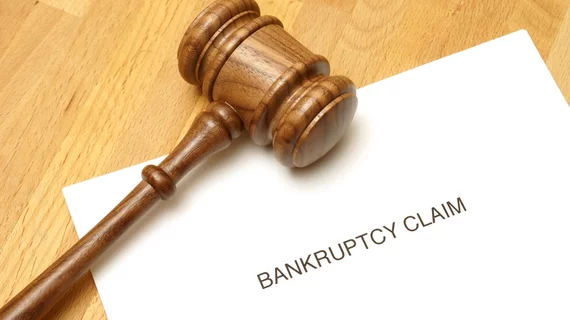Purdue Pharma files for bankruptcy in opioid settlement
Purdue Pharma, a drug manufacturer and maker of the popular opioid OxyContin, filed for bankruptcy in the fallout of thousands of lawsuits targeting the company for its role in the national opioid abuse and overdose epidemic.
The bankruptcy action is part of Purdue Pharma and its 23 affiliated debtors’ settlement to secure a final resolution for all the pending litigation. The filing comes days after Purdue Pharma reached a settlement deal estimated to be more than $10 billion, with the owners of the company––the Sackler family––giving up roughly $3 billion over the next several years in addition to losing control of the company.
Purdue became the target of lawsuits for the part it played as a drug maker of a widely used and highly addictive opioid, OxyContin. In 2018, 68,000 drug overdose deaths from opioids were recorded in the U.S.
Purdue came under fire last year after its marketing practices were revealed to be deceptive when it came to OxyContin, with the company continually downplaying the risks of opioids, misleading prescribers and patients about the risks and overstating the benefits of the drugs. At the same time, the Sackler family rose to significant wealth and were ranked on the Forbes billionaire’s list as one of the richest families in the U.S. with a net worth of $13 billion.
The $10 billion settlement is still subject to court approval and contains several elements, including the dissolution of 100% ownership by the Sacklers and a minimum $3 billion contribution from the family. Instead, ownership will be shifted to a trust or another entity established for the benefit of claimants and the American people, according to an announcement from Purdue.
The new company will have a new board approved by the bankruptcy court and selected by the claimants and will contribute “tens of millions” of opioid overdose reversal doses and addiction treatment medications at no or low cost. Other restrictions, including against marketing the sale and promotion of opioids, may apply.
“This unique framework for a comprehensive resolution will dedicate all of the assets and resources of Purdue for the benefit of the American public,” Steve Miller, chairman of Purdue’s Board of Directors, said in a statement. “This settlement framework avoids wasting hundreds of millions of dollars and years on protracted litigation, and instead will provide billions of dollars and critical resources to communities across the country trying to cope with the opioid crisis. We will continue to work with state attorneys general and other plaintiff representatives to finalize and implement this agreement as quickly as possible.”
In the middle of the opioid crisis, the pharma industry has plummeted in its reputation, with the lowest industry rating by Americans, according to a recent Gallup poll. Other drugmakers are facing similar litigation for their roles in the opioid crisis, with Johnson & Johnson recently being handed a $572 million judgment to settle claims in Oklahoma.

